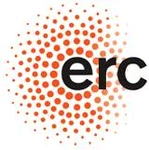Optical thermometry to image the coupling between flow and heat transport processes in geological fractures

CNRS
The PhD will be carried out in Geosciences Rennes. The Geosciences Rennes hydrogeology team is one of the leading European group in the field of hydrogeology. Géosciences Rennes (GR) is a joint research unit (CNRS + UR1) with 60 permanent researchers. It hosts ~10 foreign researchers/year, and publishes ~ 100 papers/year. The Rennes hydrogeology group is composed of 15 permanent staff.
The PhD will be supervised by Maria Klepikova. The expertise on fluid experimentation in porous media systems will be provided by Y. Méheust, while the expertise in optical thermometry technique will be provided by B. Fond (ONERA – The French Aerospace Lab).
Hydrological Sciences (HS)
We are pleased to announce a PhD position at University of Rennes, France on the modelling of heat transport processes in the subsurface. This position is offered in the frame of the recently funded ERC (European Research Council) starting grant “CONCRETER” (Groundwater flow CONtrols on CRitical ZonE, https://www.bretagne-pays-de-la-loire.cnrs.fr/fr/personne/maria-klepikova).
Understanding heat transport processes in the subsurface is central to many environmental, geological and industrial processes. This interest is especially stimulated by the observed response of the ground thermal regimes to ongoing climate change, by the growing need in geothermal energy use. Groundwater flow plays a key role in the distribution of heat at different scales. However, while this key role has been generally recognized, existing modeling frameworks have largely sidestepped the complexities associated with the heterogeneity in groundwater flow present at a wide range of spatial scales. The major scientific obstacle that prevents accurate understanding of the impact of subsurface heterogeneity in hydraulic and thermal properties on heat transport is related to our inability to image the hidden interaction between flow and heat transport processes at the pore/fracture scale.
This PhD project aims to examine the conditions in natural saturated fractured media under which classical formalisms, i.e., disregarding structural heterogeneity, apply and determine when they are expected to fail, and laboratory experiments are unique assets to tackle this issue. This raises technical challenges as current experimental techniques, based on point (sensor) temperature measurements, do not allow capturing the interplay between temperature gradients and 3D flow topologies. In this project, high resolution optical monitoring of the time-evolving temperature field will be achieved by an optical thermometry technique. The method will be applied to image the spatial distribution of temperature in rough geological fractures and to investigate the effects 3-D fracture geometry has on the scaling of heat recovery in both space and time.
Please include in your application:
- a brief account of the applicant’s research interests and motivation for applying for the position;
- the names and contact information for two referees (one of these should be the main advisor for the master’s thesis or equivalent thesis);
- a CV;
- transcripts and diplomas showing completion of the bachelor’s and master’s degrees (if you have not yet completed your master’s degree, please submit a statement from your institution confirming that the master’s thesis has been submitted);
- relevant certificates/references;
- a list of any works of a scientific nature (publication list).
